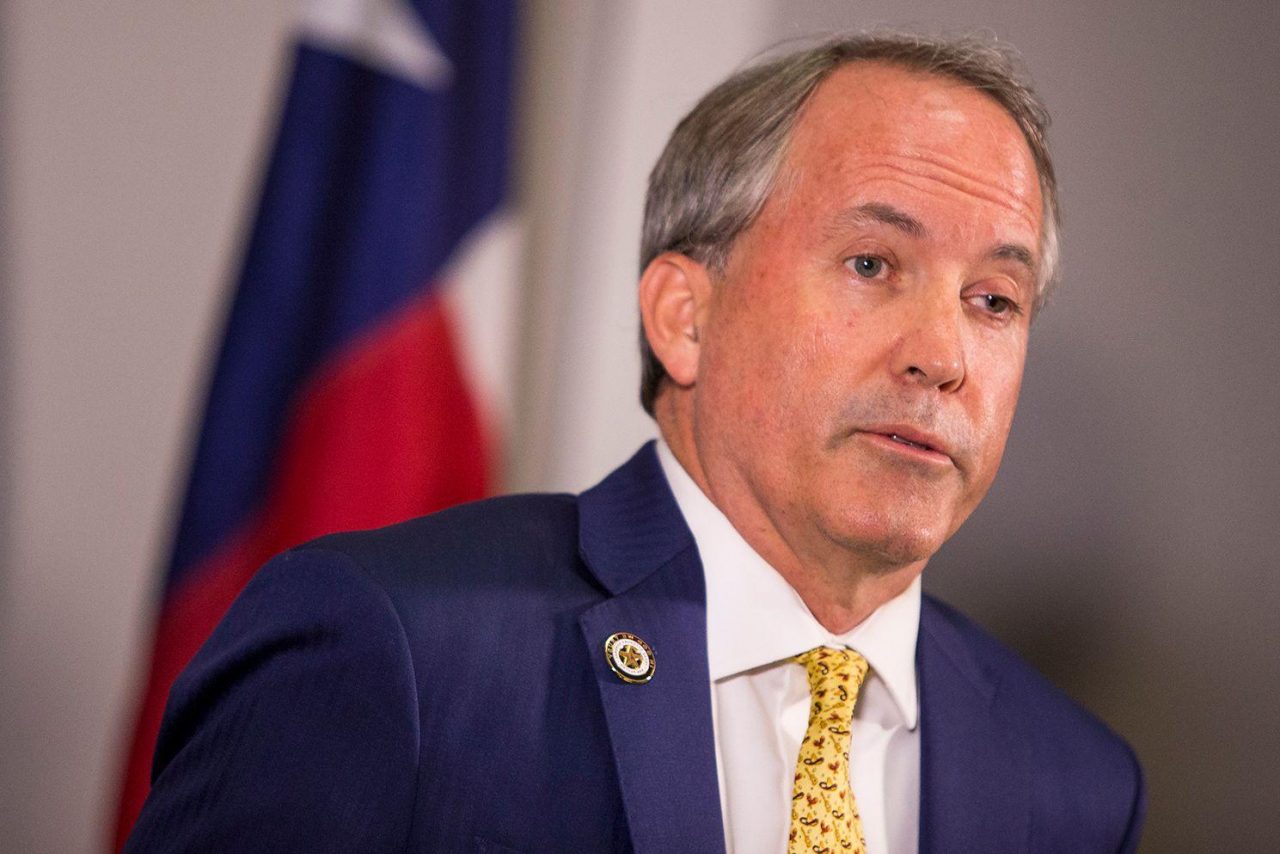Texas News
The 20 Articles of Impeachment for Ken Paxton
The impeachment trial will start Tuesday, September 5, 2024. Lieutenant Governor Dan Patrick will assume the role of the presiding judge.
Here is a summary of the 20 charges against him.

A historic resolution passed by the Texas House of Representatives has sent shockwaves through the Lone Star State’s political landscape. The resolution, brought forth by the House of Representatives of the State of Texas, officially impeaches Attorney General Warren Kenneth Paxton Jr. on a multitude of charges, backed by a series of meticulously detailed articles of impeachment.
The impeachment trial will start Tuesday, September 5, 2024. Lieutenant Governor Dan Patrick will assume the role of the presiding judge, while the senators will act as jurors. According to the established rules, if Paxton is found guilty on any of the impeachment charges, he will be ousted from his position for the remainder of his four-year term, set to conclude in 2026. Furthermore, such a conviction could result in a permanent prohibition from holding any public office within the state.
ARTICLE I: Disregard of Official Duty – Protection of Charitable Organization
In this first article, it is alleged that Paxton failed to fulfill his role as the guardian of charitable organizations, as mandated by Chapter 123 of the Property Code. It is claimed that Paxton’s actions adversely affected the Roy F. & JoAnn Cole Mitte Foundation in favor of Nate Paul.
ARTICLE II: Disregard of Official Duty – Abuse of the Opinion Process
Article II accuses Paxton of abusing his official power by manipulating the issuance of legal opinions. It is alleged that Paxton used his position to obstruct foreclosure sales related to properties linked to Nate Paul, concealing his actions through a convoluted scheme involving a Senate committee chair.
ARTICLE III: Disregard of Official Duty – Abuse of the Open Records Process
Paxton is further accused in Article III of misusing his authority under Chapter 552 of the Government Code, ordering his staff to act against the law regarding public information requests. This included refusing proper decisions and issuing decisions that contravened the law and legal precedents.
ARTICLE IV: Disregard of Official Duty – Misuse of Official Information
Article IV alleges that Paxton improperly accessed non-public information for the benefit of Nate Paul.
ARTICLE V: Disregard of Official Duty – Engagement of Cammack
Paxton is charged with engaging Brandon Cammack in an investigation based on a baseless complaint in Article V. This resulted in over 30 grand jury subpoenas being issued, all seemingly in favor of Nate Paul or his business interests.
ARTICLE VI: Disregard of Official Duty – Termination of Whistleblowers
Article VI contends that Paxton violated whistleblower laws (Chapter 554 of the Government Code) by terminating employees who had reported his illegal actions to law enforcement authorities. This was allegedly done in retaliation, with Paxton also engaging in a campaign to damage the whistleblowers’ professional reputations.
ARTICLE VII: Misapplication of Public Resources – Whistleblower Investigation and Report
Paxton is accused of directing the use of public resources in Article VII to conduct a sham investigation into whistleblower complaints and produce a lengthy report containing false or misleading statements in his defense.
ARTICLE VIII: Disregard of Official Duty – Settlement Agreement
Article VIII asserts that Paxton concealed his wrongful acts connected to whistleblower complaints, entering into a settlement agreement paid from public funds. This delay was allegedly advantageous to Paxton, depriving voters of critical information when voting for attorney general.
ARTICLE IX: Constitutional Bribery – Paul’s Employment of Mistress
Paxton is charged with constitutional bribery in Article IX, benefiting from Nate Paul’s employment of a woman with whom Paxton was having an extramarital affair, allegedly resulting in favorable legal assistance for Paul.
ARTICLE X: Constitutional Bribery – Paul’s Providing Renovations to Paxton Home
Article X alleges Paxton benefited from renovations provided to his home by Nate Paul, again resulting in favorable legal assistance for Paul.
ARTICLE XI: Obstruction of Justice – Abuse of Judicial Process
Paxton is accused of abusing the judicial process in Article XI, using it to delay the trial related to his indictment for securities fraud, allegedly depriving voters of an informed choice during the election.
ARTICLE XII: Obstruction of Justice – Interference with Prosecutors
Article XII claims that Paxton benefited from a lawsuit filed by Jeff Blackard, a campaign donor, which disrupted payment to prosecutors involved in his criminal securities fraud case, causing further delays in the trial.
ARTICLE XIII: False Statements in Official Records – State Securities Board Investigation
Article XIII charges Paxton with making false statements to the State Securities Board during their investigation into his failure to register as required by law.
ARTICLE XIV: False Statements in Official Records – Personal Financial Statements
Article XIV accuses Paxton of failing to accurately disclose his financial interests in his personal financial statements, required by law.
ARTICLE XV: False Statements in Official Records – Whistleblower Response Report
Paxton is charged with making multiple false or misleading statements in the response report issued by his office in relation to whistleblower allegations.
ARTICLE XVI: Conspiracy and Attempted Conspiracy
Article XVI alleges Paxton conspired or attempted to conspire to commit acts described in one or more articles.
ARTICLE XVII: Misappropriation of Public Resources
Paxton is charged with misusing his official powers to have employees of his office perform services for his benefit and that of others.
ARTICLE XVIII: Dereliction of Duty
Article XVIII contends that Paxton violated the Texas Constitution, his oaths of office, statutes, and public policy against public officials acting contrary to the public interest.
ARTICLE XIX: Unfitness for Office
In Article XIX, it is alleged that Paxton engaged in misconduct, public or private, indicative of his unfitness for office.
ARTICLE XX: Abuse of Public Trust
The final article, Article XX, accuses Paxton of using his official powers to subvert the government’s lawful operation and obstruct justice, damaging the Office of Attorney General’s reputation and public confidence.
As this impeachment process unfolds, it promises to be a landmark event in the political history of the State of Texas, with ramifications that could extend far beyond its borders.
Featured
Attorney General Ken Paxton Secures $1.4 Billion Settlement with Meta Over Unauthorized Biometric Data Capture

Texas Attorney General Ken Paxton has successfully negotiated a $1.4 billion settlement with Meta Platforms, Inc. (formerly known as Facebook) over allegations of unauthorized biometric data collection. This settlement, the largest ever obtained from a single state’s action, underscores the importance of protecting privacy rights in the digital age and sets a new precedent for holding technology giants accountable.
Background and Context
The roots of this historic settlement trace back to 2011 when Meta introduced a feature known as Tag Suggestions. This feature, designed to improve user experience by making it easier to tag individuals in photographs, operated by using facial recognition technology to automatically identify people in photos uploaded to Facebook. While the feature was promoted as a convenience, it also involved the surreptitious collection and use of biometric data without users’ informed consent.
Biometric data, which includes unique identifiers such as facial geometry, is considered highly sensitive due to its permanent and unchangeable nature. Recognizing the potential for abuse and the need for stringent protections, Texas enacted the “Capture or Use of Biometric Identifier” Act (CUBI) to regulate the collection and use of such data. Under CUBI, businesses are required to inform individuals and obtain their explicit consent before capturing their biometric identifiers.
However, Meta’s implementation of facial recognition technology violated these legal requirements. The company turned on the Tag Suggestions feature by default, capturing biometric data from millions of Texans without proper disclosure or consent. This practice persisted for over a decade, impacting virtually every user who uploaded photos to the platform.
The Legal Battle
In February 2022, Attorney General Ken Paxton filed a lawsuit against Meta, accusing the company of violating Texas’s biometric privacy and consumer protection laws. The lawsuit argued that Meta’s actions not only breached CUBI but also constituted deceptive trade practices under Texas law. The primary allegations included:
- Unauthorized Biometric Data Collection: Meta collected biometric identifiers from Texans without their informed consent, a clear violation of CUBI.
- Deceptive Practices: By failing to disclose the true nature and extent of its data collection practices, Meta misled users about the privacy implications of using its platform.
- Privacy Violations: The unauthorized use of facial recognition technology posed significant privacy risks, given the sensitive nature of biometric data.
Attorney General Paxton’s office emphasized the significance of the case, noting that it was the first lawsuit brought and the first settlement obtained under Texas’s CUBI Act. The legal action aimed not only to secure justice for affected Texans but also to send a strong message to other companies about the importance of complying with privacy laws.
Settlement Details
After two years of vigorous litigation, the parties reached a settlement agreement in 2024. Meta agreed to pay the state of Texas $1.4 billion over five years, marking the largest privacy settlement ever obtained by an Attorney General. This settlement dwarfs the previous record, a $390 million settlement a group of 40 states obtained from Google in late 2022.
The settlement includes several key provisions designed to ensure future compliance and protect Texans’ privacy rights:
- Consent Requirement: Meta must obtain explicit, informed consent from users before collecting any biometric data. This includes clear and conspicuous disclosures about the types of data being collected and the purposes for which it will be used.
- Data Deletion: Meta is required to delete all previously collected biometric data that was obtained without proper consent. This includes data collected through features like facial recognition.
- Transparency Measures: Meta must implement enhanced transparency measures, providing users with easy access to information about the data being collected and how it is being used. This may involve updates to privacy policies and user interfaces.
- Compliance Audits: Meta will be subject to regular compliance audits to ensure adherence to the new data collection practices. These audits will be conducted by an independent third party, with the results reported to the Texas Attorney General’s office.
- User Control: Meta must provide users with greater control over their biometric data, including options to opt-out of data collection and to request the deletion of their data at any time.
- Training and Policies: Meta is required to implement comprehensive training programs for its employees on data privacy and biometric data handling. Additionally, the company must establish and enforce internal policies to ensure compliance with the new requirements.
Statements and Reactions
Attorney General Ken Paxton hailed the settlement as a significant victory for Texans and a warning to other companies. “After vigorously pursuing justice for our citizens whose privacy rights were violated by Meta’s use of facial recognition software, I’m proud to announce that we have reached the largest settlement ever obtained from an action brought by a single State,” Paxton stated. “This historic settlement demonstrates our commitment to standing up to the world’s biggest technology companies and holding them accountable for breaking the law and violating Texans’ privacy rights. Any abuse of Texans’ sensitive data will be met with the full force of the law.”
The legal teams involved in the case also played a crucial role in securing the settlement. Keller Postman and McKool Smith served as co-counsel to the Texas Attorney General’s office, with Zina Bash, Sam Baxter, and Jennifer Truelove leading the litigation efforts. Their aggressive litigation posture and expertise in privacy law were instrumental in achieving this landmark outcome.
Implications and Future Impact
The $1.4 billion settlement has far-reaching implications for both Meta and the broader technology industry. For Meta, the financial penalty and mandated changes to its data collection practices represent a significant shift in how the company handles biometric data. The settlement serves as a wake-up call, highlighting the need for transparency and user consent in data-driven business models.
For the technology industry, the case sets a new standard for privacy protection and regulatory compliance. It demonstrates that state governments can and will take decisive action against companies that violate privacy laws, regardless of their size or influence. The settlement may encourage other states to enact or strengthen their biometric privacy laws, leading to increased scrutiny of data collection practices nationwide.
Privacy advocates have lauded the settlement as a major step forward in safeguarding consumer rights. The case underscores the importance of robust legal frameworks to protect individuals from unauthorized data collection and misuse. As digital technologies continue to evolve, ensuring that privacy laws keep pace with technological advancements remains a critical priority.
Conclusion
The $1.4 billion settlement between Texas and Meta marks a historic moment in the fight for digital privacy. It reflects the determination of Attorney General Ken Paxton and his team to hold technology companies accountable for violating privacy rights and sets a powerful precedent for future enforcement efforts. As Texans benefit from the strengthened protections and increased transparency resulting from this settlement, the case stands as a testament to the importance of vigilant oversight and robust legal safeguards in the digital age.
People
Daniel Miller and the TEXIT Debacle: The Incompetence that Doomed a Movement

In the expansive realm of Texas politics, Daniel Miller, the dynamic President of the Texas Nationalist Movement (TNM), has been a fervent advocate for the TEXIT movement since its inception in 1996. Recognized on major news networks and international outlets, Miller’s charismatic stance on Texas independence has positioned him as a central figure in the Lone Star State’s political landscape. As the face of the TEXIT movement, Miller’s leadership warrants scrutiny, delving into both successes and challenges that shape the narrative of his tenure.
Background History of Daniel Miller:
Daniel Miller, a sixth-generation Texan, brings a unique blend of tech consultancy and entrepreneurial spirit to the TEXIT movement. His political journey, however, is marked by setbacks. In the 2012 House District Republican primary, Miller faced a formidable defeat against Allan Ritter, securing only 27% of the votes. Undeterred, he ventured into the 2022 Texas Lt. Governor primary, yet the outcome echoed his previous loss, with Dan Patrick commanding 76% of the votes and Miller securing a distant second with just 7%. These early challenges in Miller’s political career provide context for the hurdles he would later navigate in steering the TEXIT movement toward its goal of Texas independence.
The Texas Nationalist Movement (TNM):
The TNM, under Daniel Miller’s leadership since its evolution in 2005, has become a pivotal force in Texas politics, not because of Miller’s involvement, but in spite of it. Evolving from a faction of the old Republic of Texas, the TNM’s mission is explicit: “the complete, total and unencumbered political, cultural and economic independence of Texas.” Operating as an unincorporated association, the TNM’s focus on peaceful political advocacy, education, and the pursuit of a statewide referendum sets the stage for the TEXIT movement. Miller’s role extends beyond advocacy, as he testifies on legislation and participates in conferences globally, solidifying the TNM’s status as a formidable political entity.
Series of Failures:
Referendum Mishaps:
The handling of the TEXIT referendum became a critical juncture in Miller’s leadership. He failed to understand the law and submit ballots on time. He failed to understand the legal requirement for wet signatures. And technical glitches on the petition website likely meant that many more signatures could have been obtained. These missteps not only delayed the movement’s momentum but raised questions about the TEXIT leadership’s competence and preparedness.
The technical failure of the petition website was particularly problematic. For days, perhaps weeks, programming errors plagued the platform, preventing individuals from completing the registration process. The system’s incapacity to rectify errors disenfranchised countless individuals. The severity of these issues questioned the TEXIT movement’s technological infrastructure and its ability to navigate complex legal processes. We should also mention that this is actually the type of business that is Miller’s main job … and it failed miserably.
TEXITCON Press Restrictions:
The TEXITCON event, which was a great idea that was long overdue, faced a critical misstep under Miller’s leadership – a failure to allow free press opportunities. The Texas Liberty Journal’s attempts to secure a press pass were met with complete silence, pointing to a broader issue of restricted media coverage and public awareness. Access to the event would only be possible if one paid for admission. This is not how the press operates and any amateur event organizer would know this. This communication breakdown not only hindered media engagement but also raised concerns about the real motivations of the event. Was it about awareness and organization? Or was it just about making money?
This press restriction holds broader implications. Limited media coverage restricts the dissemination of information about the TEXIT movement’s goals, progress, and activities. The absence of a robust media presence opens the door to misinformation and limits constructive public discourse. In a movement where public perception is pivotal, stifling media access has far-reaching consequences, potentially isolating the TEXIT movement from valuable feedback and alternative viewpoints.
Legal Troubles and Financial Irregularities:
a. IRS Closure of 501c(4):
A significant episode under Miller’s leadership was the closure of TNM’s 501c(4) status by the IRS in May 2023. This move may signal legal troubles or it may once again represent incompetence. In the very least it represents a lack of transparency as no mention of this has been made by the TNM. The closure raises questions about the internal governance and financial practices of the Texas Nationalist Movement Inc. as well. Did they stop being a non-profit? Where is the money from the online store going?
The IRS closure unveils a broader challenge in managing the legal aspects of the movement. As a key advocacy organization, maintaining compliance with federal regulations is paramount. The closure not only tarnishes the image of the TNM but underscores the importance of robust governance mechanisms in movements of this nature.
b. Business Registration Shell Game:
Further scrutiny reveals a concerning practice – the shelling of the Texas Business Registration through another company, “TNM Protective Services, LLC.” This maneuver introduces an element of opaqueness into the organizational structure. Coupled with the inactive status of the “Texas Nationalist Movement Foundation Inc”, this prompts questions about organizational transparency and accountability.
The use of multiple entities and the status of these entities raise concerns about financial practices and organizational integrity. Advocating for political, cultural, and economic independence necessitates a level of transparency that aligns with the movement’s core values. The complexities in business registration demand a closer examination of the TEXIT movement’s financial strategies and its commitment to ethical conduct.
c. Lost Domain Name
When Miller launched his book in 2020 “Texit: Why and How Texas Will Leave The Union“, the back cover of his book listed his domain as www.DanielMiller.com. Sometime after the publication he lost control of his own domain. This often happens when the owner fails to pay the renewal fee to their domain host. Generally, domain names run about $15.00 / year but when the owner fails to renew a domain, ‘squatters’ can jump in and grab it. Often, they will then jack up the price and hope that the owner will pay to have it restored. For common names, or names of celebrities, the fee can go up quite a bit. In this case, DanielMiller.com is currently offered for sale at $79,888.
Few in their right mind would pay such a fee and such a domain name is only valuable to a person who shares this name…that’s a pretty small market. This appears to be the case for Miller who has subsequently registered the domain www.DanielOMiller.com … adding the ‘O’. But the question remains, how does one fail to renew their own domain name? What does it say about a person’s management skills that they would fail at such a simple task? Miller has not returned our inquiry so we are unable to get his side of the story.
The Elusive Financial Trail:
The uncertainty surrounding the online TEXIT product store adds another layer to this financial opaqueness. With little information available about the revenue distribution and the company handling these transactions, questions linger about the accountability of the TEXIT movement. Transparency in financial matters is not just a legal requirement but a moral obligation, especially for a movement that seeks to empower Texans in determining their destiny.
Conclusion: A Call for Renewed Leadership in the TEXIT Movement
As we meticulously examine Daniel Miller’s leadership of the TEXIT movement, a pattern of failures and incompetence emerges, raising serious questions about his ability to steer the movement forward after over two decades. The challenges faced, from referendum mishaps to the restrictions on press freedom and legal and financial irregularities, paint a concerning picture of the movement’s current trajectory.
Delayed ballot submissions, a lack of understanding about legal requirements, and technical failures on the petition website, showcase a level of incompetence that is detrimental to a movement striving for Texas independence. These missteps not only hinder the momentum of TEXIT but also cast doubt on Miller’s capacity to navigate the intricate legal and technological landscape that such a movement demands.
The press restrictions observed at TEXITCON further underscore a deficiency in leadership. In a movement that claims to champion transparency and democratic principles, stifling media access raises serious concerns about accountability and openness. The lack of media engagement limits public awareness and stifles constructive discourse, hindering the movement’s ability to gain broad support.
The IRS shut down the 501c(4), a move that typically happens after a company fails to turn in its forms for 3 consecutive years. The questionable business registration practices that hide who is running the company reveal an unsettling lack of governance and transparency. For a movement that advocates for the political, cultural, and economic independence of Texas, such financial opaqueness is not just a red flag; it is a fundamental betrayal of the ideals the movement professes.
After more than 20 years under Miller’s leadership, it becomes imperative for the people invested in the TEXIT movement to critically assess its direction. The numerous failures and shortcomings raise a pivotal question: Is Daniel Miller the right leader to guide the movement into the future? A movement takes more than passion to succeed, it takes leadership, experience, and competence. Perhaps it is time for the people to seek out a new representative who can bring these fresh perspectives and a strategic understanding of the complexities of politics.
Moving the TEXIT movement forward requires adept leadership that can learn from past mistakes, adapt to challenges, and effectively navigate the intricate web of politics, legality, and public relations. The vision of a free and independent Texas is too significant to be hindered by the failures of the past. It is time for the people to seek a leader who can reinvigorate the movement, inspire confidence, and, most importantly, lead Texas toward a future that aligns with the aspirations of its people.
Election
The Lone Star Shake-Up: Challengers Abound in Texas House Districts

Filing Deadline Closes with a Slew of Contested Races for March 5 Primaries
Austin Texas – The deadline for filing to run in the March 5 Primaries closed on December 11, 2023, Texas sees a multitude of contested races across the State. The political arena is set for an exciting primary season with both familiar faces and new challengers vying for a place on the ballot.
A remarkable surge in political engagement has led to an extraordinary level of competition, with numerous districts witnessing a multitude of candidates vying for their party’s nomination. This historic phenomenon signals a vibrant and dynamic political landscape in the Lone Star State, reflecting a diverse range of voices and perspectives eager to contribute to the state’s legislative decisions. The sheer volume of contested primaries underscores the intensity of the political climate, showcasing a heightened interest and involvement from both seasoned politicians and newcomers alike. As voters prepare to head to the polls, the significance of this historic moment is sure to shape the future trajectory of Texas politics.
In the lead-up to the Texas elections, some key districts are becoming focal points of political tension, with incumbents encountering robust challenges from determined opponents.
District 21: Texas House Speaker Dade Phelan Faces Strong Opposition
Texas House Speaker Dade Phelan finds himself in the eye of the political storm as he contends with challengers David Covey and Alicia Davis in District 21. Phelan’s reputation has taken a hit, particularly following his failed attempt to impeach Texas Attorney General Ken Paxton. Censured by multiple Republican parties across the state, including Travis, Smith, Tarrant, Harris, Orange, Ellis, Dallas, and Montgomery counties, Phelan’s leadership is under intense scrutiny.
Republican Party of Texas (RPT) Chairman Matt Rinaldi expressed his discontent, stating, “This Speaker has done more political damage to his own supporters than any in recent history. He’s making it clear that he doesn’t intend to change a thing unless he’s removed.” With mounting opposition, Phelan’s political future hangs in the balance.
House District 80: Eight Challengers Vie for Nomination
House District 80 is witnessing a crowded field with no less than eight contenders vying for the nomination, five from the Democratic side and three from the Republican camp. The Democratic candidates include Cecilia Castellano, Rosie Cuellar, Teresa Johnson Hernandez, Carlos Lopez, and Graciela Villarreal. On the Republican front, contenders are Don McLaughlin, Clint Powell, and JR Ramirez.
Currently held by Democrat Tracy King, this South Texas district encompasses Uvalde, Pearsall, and extends south to Laredo. The diverse pool of candidates indicates a fervent desire for change and new representation.
District 68: Republican Incumbent David Spiller Faces Dual Challenge
In District 68, Republican incumbent David Spiller is navigating a challenging path as he contends for the Republican nomination against Kerri Kingsbery, while also facing an unlikely Democratic challenger, Stacey Swann. Kingsbery, endorsed by Ken Paxton, stands out as a formidable contender with a potential to unseat Spiller.
Kingsbery’s advocacy for prioritizing Republican legislative goals has garnered support from the conservative base. The race in District 68 underscores the broader theme of a changing political landscape, with candidates seeking to align with the priorities of their constituents.
These pivotal contests are part of a larger landscape of challenges across various districts. For a comprehensive view of all districts and candidates under challenge, refer to the detailed table available below. As the election season unfolds, these districts will be closely watched, offering voters the opportunity to choose representatives who resonate with their values and expectations for effective leadership. The outcome in these key races, along with others in the state, may well shape the future direction of Texas politics.
| District | Democrat | Republican |
| District 1 | . | Gary VanDeaver (i) |
| . | . | Dale Huls |
| . | . | Chris Spencer |
| District 2 | Kristen Washington | Jill Dutton |
| . | . | Brent Money |
| District 4 | Alex Bar-Sela | Keith Bell (i) |
| . | . | Joshua Feuerstein |
| . | . | Cole Hefner (i) |
| . | . | Dewey Collier |
| . | . | Jeff Fletcher |
| District 7 | Marlena Cooper | Jay Dean (i) |
| . | . | Joe Mcdaniel |
| . | . | Bonnie Walters |
| District 8 | Carolyn Salter | Cody Harris (i) |
| . | . | Jaye Curtis |
| District 11 | . | Travis Clardy (i) |
| . | . | Joanne Shofner |
| District 12 | Dee Howard Mullins | John Slocum |
| . | . | Trey Wharton |
| District 14 | Fred Medina | Rick Davis |
| . | . | Paul Dyson |
| District 15 | . | Steve Toth (i) |
| . | . | Skeeter Hubert |
| District 17 | Desiree Venable | Stan Gerdes (i) |
| . | . | Tom Glass |
| District 18 | . | Ernest Bailes (i) |
| . | . | Janis Holt |
| . | . | Stephen Missick |
| District 19 | Dwain Handley | Ellen Troxclair (i) |
| . | Zach Vance | Kyle Biedermann |
| District 20 | Stephen Wyman | Terry Wilson (i) |
| . | . | Elva Janine Chapa |
| District 21 | . | Dade Phelan (i) |
| . | . | David Covey |
| . | . | Alicia Davis |
| District 22 | Christian Manuel (i) | . |
| . | Luther Wayne Martin III | . |
| . | Al Price Jr. | . |
| District 23 | Keith Henry | Terri Leo-Wilson (i) |
| . | Dev Merugumala | . |
| District 24 | . | Greg Bonnen (i) |
| . | . | Larissa Ramirez |
| District 26 | Daniel Lee | Jacey Jetton (i) |
| . | . | Jessica Huang |
| . | . | Matt Morgan |
| District 28 | Marty Rocha | Gary Gates (i) |
| . | . | Dan Mathews |
| District 29 | Adrienne Bell | Jeffrey Barry |
| . | . | Alex Kamkar |
| . | . | Edgar Pacheco Jr. |
| . | . | Trent Perez |
| District 30 | Stephanie Bassham | Bret Baldwin |
| . | . | Jeff Bauknight |
| . | . | Vanessa Hicks-Callaway |
| . | . | A.J. Louderback |
| District 33 | . | Justin Holland (i) |
| . | . | Dennis London |
| . | . | Katrina Pierson |
| District 34 | Roland Barrera | . |
| . | Solomon Ortiz | . |
| District 37 | Ruben Cortez Jr. | Janie Lopez (i) |
| . | Alex Dominguez | . |
| . | Jonathan Gracia | . |
| . | Carol Lynn Sanchez | . |
| District 39 | Armando Martinez (i) | Robert Cantu |
| . | . | Jimmie Garcia |
| District 44 | Eric Norman | John Kuempel (i) |
| . | . | David Freimarck |
| . | . | Greg Switzer |
| District 45 | Erin Zwiener (i) | Tennyson Moreno |
| . | Chevo Pastrano | . |
| District 52 | Jennie Birkholz | Caroline Harris (i) |
| . | Angel Carroll | . |
| District 53 | Joe P. Herrera | Hatch Smith |
| . | . | Wes Virdell |
| District 55 | Jennifer Lee | Hugh Shine (i) |
| . | . | Davis Ford |
| . | . | Hillary Hickland |
| District 56 | Erin Shank | Pat Curry |
| . | . | Devvie Duke |
| District 58 | . | DeWayne Burns (i) |
| . | . | Helen Kerwin |
| District 60 | . | Glenn Rogers (i) |
| . | . | Mike Olcott |
| District 61 | Tony Adams | Frederick Frazier (i) |
| . | . | Chuck Branch |
| . | . | Keresa Richardson |
| District 63 | Michelle Beckley | Ben Bumgarner (i) |
| . | H. Denise Wooten | Carlos Andino Jr. |
| . | . | Vincent Gallo |
| District 64 | Angela Brewer | Lynn Stucky (i) |
| . | . | Elaine Hays |
| . | . | Andy Hopper |
| District 65 | Detrick Deburr | Kronda Thimesch (i) |
| . | . | Mitch Little |
| District 66 | . | Matt Shaheen (i) |
| . | . | Wayne Richard |
| District 67 | Jefferson Nunn | Jeff Leach (i) |
| . | . | Daren Meis |
| District 68 | Stacey Swann | David Spiller (i) |
| . | . | Kerri Kingsbery |
| District 70 | Mihaela Plesa (i) | Joe Collins |
| . | . | Steven Kinard |
| District 71 | Linda Goolsbee | Stan Lambert (i) |
| . | . | Charles Byrn |
| . | . | Liz Case |
| District 72 | . | Drew Darby (i) |
| . | . | Stormy Bradley |
| District 74 | Eddie Morales Jr. (i) | Robert Garza |
| . | . | John Mcleon |
| District 76 | Suleman Lalani (i) | Dayo David |
| . | . | Summara Kanwal |
| . | . | Lea Simmons |
| District 77 | Alexsandra Annello | . |
| . | Norma Chavez | . |
| . | Vincent Perez | . |
| . | Homer Reza | . |
| District 80 | Cecilia Castellano | Don McLaughlin |
| . | Rosie Cuellar | Clint Powell |
| . | Teresa Johnson Hernandez | JR Ramirez |
| . | Carlos Lopez | . |
| . | Graciela Villarreal | . |
| District 83 | . | Dustin Burrows (i) |
| . | . | Wade Cowan |
| District 85 | . | Stan Kitzman (i) |
| . | . | Tim Greeson |
| District 86 | . | John Smithee (i) |
| . | . | Jamie Haynes |
| District 87 | Timothy Gassaway | Richard Beyea |
| . | . | Cindi Bulla |
| . | . | Caroline Fairly |
| . | . | Jesse Quackenbush |
| District 88 | . | Ken King (i) |
| . | . | Karen Post |
| District 89 | . | Candy Noble (i) |
| . | . | Abraham George |
| District 91 | . | Stephanie Klick (i) |
| . | . | David Lowe |
| District 97 | Diane Symons | Cheryl Bean |
| . | Carlos Walker | John McQueeney |
| . | . | Leslie Robnett |
| District 99 | Mimi Coffey | Charlie Geren (i) |
| . | . | Jack Reynolds |
| District 100 | Venton Jones (i) | . |
| . | Barbara Mallory Caraway | . |
| . | Sandra Crenshaw | . |
| . | Justice McFarlane | . |
| District 107 | Linda Garcia | . |
| . | Christine Roman | . |
| District 108 | Elizabeth Ginsberg | Morgan Meyer (i) |
| . | Yasmin Simon | Barry Wernick |
| District 109 | Aicha Davis | . |
| . | Victoria Walton | . |
| District 112 | Averie Bishop | Angie Chen Button (i) |
| . | . | Chad Carnahan |
| District 115 | Scarlett Cornwallis | John Jun |
| . | Cassandra Garcia Hernandez | . |
| . | Kate Rumsey | . |
| District 118 | Kristian Carranza | John Lujan (i) |
| . | Carlos Quezada | . |
| District 119 | Elizabeth Campos (i) | Brandon Grable |
| . | Charles Fuentes | . |
| District 121 | Shekhar Sinha | Steve Allison (i) |
| . | Laurel Jordan Swift | Michael Champion |
| . | . | Marc LaHood |
| District 128 | Charles Crews | Briscoe Cain (i) |
| . | . | Bianca Gracia |
| District 130 | Henry Arturo | Tom Oliverson (i) |
| . | Brett Robinson | . |
| District 131 | Alma Allen (i) | . |
| . | James Guillory | . |
| . | Erik Wilson | . |
| District 133 | . | Mano Deayala (i) |
| . | . | John Perez |
| District 138 | Stephanie Morales | Lacey Hull (i) |
| . | . | Jared Woodfill |
| District 139 | Rosalind Caesar | . |
| . | Jerry Ford Sr. | . |
| . | Mo Jenkins | . |
| . | Angeanette Thibodeaux | . |
| . | Charlene Ward Johnson | . |
| District 142 | Harold Dutton Jr. (i) | . |
| . | Joyce Chatman | . |
| . | Clint Horn | . |
| . | Danyahel Norris | . |
| District 146 | Shawn Thierry (i) | Lance York |
| . | Lauren Ashley Simmons | . |
| . | Ashton Woods | . |
| District 149 | Hubert Vo (i) | Lily Truong |
| . | David Romero | . |
-

 Election3 months ago
Election3 months agoKamala Harris’s Record on Marijuana: A Tale of Hypocrisy in the Pursuit of Power
-

 National3 months ago
National3 months agoWendy Bell Exposes Busloads of Supporters Hidden from Public View at Kamala Harris’ Campaign Stop
-

 Featured2 months ago
Featured2 months agoRINO Republicans: Irrelevant and Out of Touch with the GOP’s Future
-

 Featured2 months ago
Featured2 months agoCalifornia Governor Gavin Newsom’s Attack on the First Amendment: The New Law Criminalizing AI-Generated Political Parody
-

 Uncategorized3 months ago
Uncategorized3 months agoHow the Harris-Biden “War on Oil” Policies Fuel Inflation
-

 Election3 months ago
Election3 months agoThe Deep State’s Endgame: Tuesday, November 5
-

 Uncategorized2 months ago
Uncategorized2 months agoDoes Rep. Jasmine Crockett Want Donald Trump to Be Killed?
-

 Uncategorized3 weeks ago
Uncategorized3 weeks agoElection Day: America’s Last Stand Against a Descent into Darkness




You must be logged in to post a comment Login